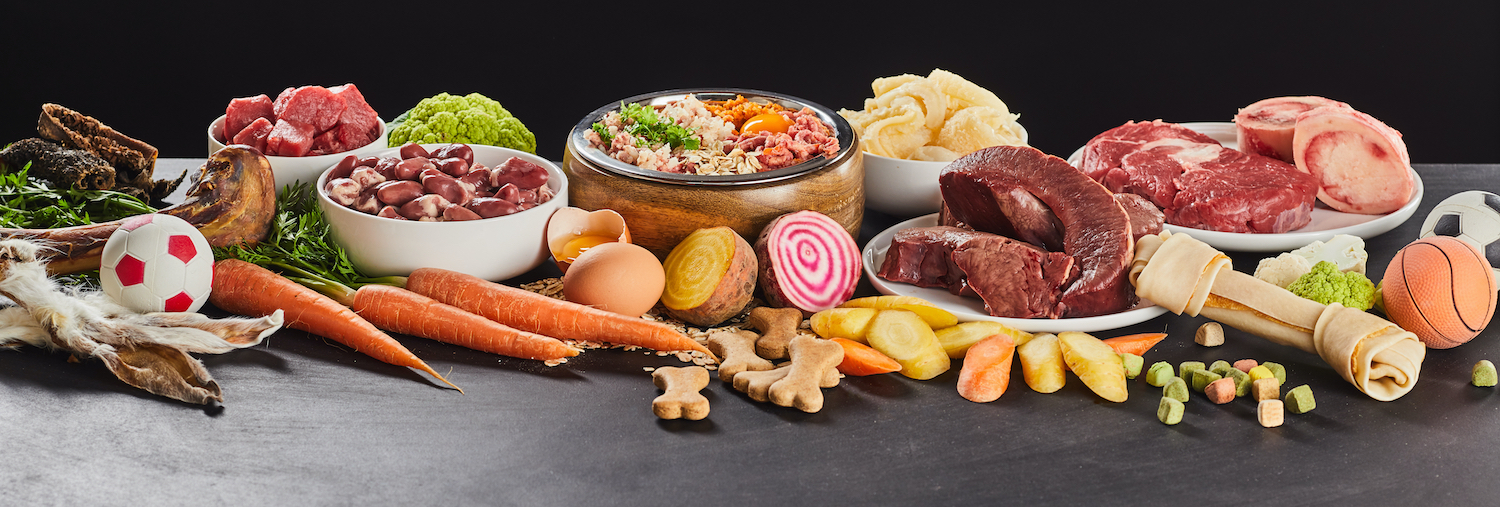
A balanced and nutritious diet is vital in making sure your dog stays healthy and happy both in the short term and long term. Poor nutrition can cause many illnesses in dogs of all ages making it important to feed your dog a balanced and nutritious diet, of high-quality food to help prevent them from falling ill.
As a dog owner, it is our responsibility to ensure that our dogs are getting adequate nutrition in order to support all their bodily functions as well as supporting a healthy immune system, maintaining strong bones, and growing strong claws and healthy coats.
In this article, we will explore 10 major health defects found in dogs as a result of poor nutrition.
Skin and Coat Conditions
When a dog is not getting enough nutrients from their food, a clear indication is in their skin and coat. If your dog isn’t eating enough nutritious food their fur will become dull, dry, brittle and sometimes itchy. They may also experience thinning of their fur and even hair loss.
Poor nutrition is the largest cause of recurring skin conditions in dogs. Feeding nutritious food will help to strengthen the skin barrier to prevent allergens from penetrating the skin and thus lowering the chances of future problems.
Hair loss and skin infections can also be caused by dietary allergies. This makes it all the more important to ensure you feed your dog a highly nutritious food that avoids the offending allergen.
“Peggy was diagnosed with food and grass allergies as a puppy when she developed large red patches of inflamed skin around her abdomen and armpits."
"After consulting our vet we now feed her an allergy-conscious diet and she takes a prescription allergy tablet every take to help prevent reactions!” – Meg Bennett
Gastrointestinal Issues
Gastrointestinal illnesses include gastrointestinal distress, colitis, gastroenteritis, gastritis, plus many more.
Diet is a significant contributing factor to these illnesses, and a good diet of highly digestible food is part of the treatment for most gastrointestinal issues and feeding your dog on a good diet is a great preventative measure against such illness.
Obesity
One of the most common problems found in dogs is obesity. It is estimated that around 45% of dogs in the UK are overweight and the number is rising each year.
Obesity means overweight and is linked with many other problems for dogs, such as decreased lifespan and higher susceptibility to other illnesses such as diabetes, and heart disease.
Obesity is a consequence of poor diet, overfeeding, and lack of exercise. As such, making sure your dog exercises regularly and eats a high-quality diet in an appropriate volume is important to prevent and treat obesity.
Heart Disease
Dogs can suffer from heart disease caused by fat build-up in the arteries around their heart. This is usually created by preventable problems such as poor nutrition and lack of exercise.
Proper nutrition and exercise are so crucial in helping to minimise your dog’s risk of illness and preventing heart disease.
Pancreatitis
Pancreatitis has an increased risk due to poor nutrition. A food that is high in carbs and fats pushes the pancreas to work harder to produce the enzymes that break down food.
Diet is such a crucial factor in the prevention of this disease that any dog who has suffered pancreatitis will need to have a monitored diet while recovering, and avoid high-fat food and treats to prevent future episodes of the illness.
Diabetes
There are two forms of diabetes in dogs, and the most common is diabetes mellitus. Diabetes mellitus is caused by a lack of insulin, and it can be genetic. However, it can also be a secondary condition related to obesity or chronic pancreatitis, which are both affected by poor nutrition.
The second form of diabetes, diabetes insipidus, is much rarer and idiopathic, occurring spontaneously and having no known cause.
A dog with diabetes will need treatment for life. However, feeding them a high-quality diet will help control their blood sugar levels, making it important as both a preventative factor and as a key part of managing the illness.
Cancer
Sadly, cancer is common in dogs. Just like with people, eating a healthy, balanced diet plays an integral part in lowering a dog’s risk of developing cancer. Being overweight also contributes to the likelihood of developing cancer, making it even more important to ensure your dog has a good diet.
Additionally, some studies have shown that diet can influence the progression of cancer and improve a dog’s quality of life even if they have the illness.
“Buddy recently had to go to the vets to have his anal glands flushed out under general anaesthetic as they had become infected."
"We have now to had to switch him to a hypo allergenic diet as it turns out he has allergies to some foods and it was causing him a lot of discomfort”. – Becky Baker
Diarrhoea
Dogs frequently suffer from bouts of diarrhoea, but there are two main types of diarrhoea: small bowel and large bowel diarrhoea. Dogs with small bowel diarrhoea typically produce large amounts of soft stool but do so just a few times a day. Large bowel diarrhoea abnormalities are centred in the colon, affected dogs will usually strain to produce small amounts of watery stool frequently throughout the day. This is large bowel diarrhoea.
To prevent large bowel diarrhoea a high fibre diet has been shown to be beneficial. For small bowel diarrhoea a bland, low fat, easily digested diet is beneficial.
Teeth
Dogs can experience bad breath, broken teeth and gum disease as a result of poor nutrition. A good quality and balanced diet can help improve their overall oral health. forthcoming tooth based illnesses.
This begins with a diet that places lean meat as its primary ingredient. There are also other preventive actions to take but starting off from the inside first always helps to deter any forthcoming tooth based illnesses.
Summary
There are many risks and health defects associated with poor quality nutrition, and with the ever-expanding food types and products available on the market, it’s often difficult to understand what is best for your dog. Our recommendation would be to find food that is of high quality and balanced whatever type of food you chose to feed your dog. A balanced and good nutrition diet for your dog will give them the best support in life, helping them to stay healthy and fit and most of all happy.
